Fintech, Real Estate, Insurance, and Automation Make Great Strides in 2019
In 2019, there are lots of changes in many fields that would have some bearing on investment decisions. By which, fintech, real estate, insurance, and automation are areas that attracted both high funding totals and a lot of individual funding rounds. How attractive these fields are to investors? The content below will clarify this question.
Fintech and Banking
It has been an exciting year for entrepreneurs in this field, with every venture capitalist deciding to write a check to at least one of those start-ups.
Recent surveys reveal that ‘neobanks’ is the new top trend, which is a term to describe upstart digital banks that can work on everything as traditional banks. This fintech and banking trend is attracting a huge amount of funding. As a result, there are many efforts on building systems of banking services to approach both consumers and businesses that have formerly been disappointed with traditional banks.
According to banking statistics, companies that focused on fintech, banking and mobile payments in North and South America gained $9.2 billion in total revenue per Crunchbase whilst the number has been rising up to $11.7 billion per Crunchbase in the next year.
However, it wasn’t the full sight of giant investments. In fact, 2019 has witnessed more than 700 known successful seeding and funding rounds for start-ups. One of the out-standing upstart banking brands, Chime, surprisingly pushed its valuation to $5.8 billion after completing the call on $700 million across 2 mega-rounds this year. Meanwhile, Brazil’s Nubank has raised a whopping $400 million in a single round in July.
Top fintech startups
#1. Stripe
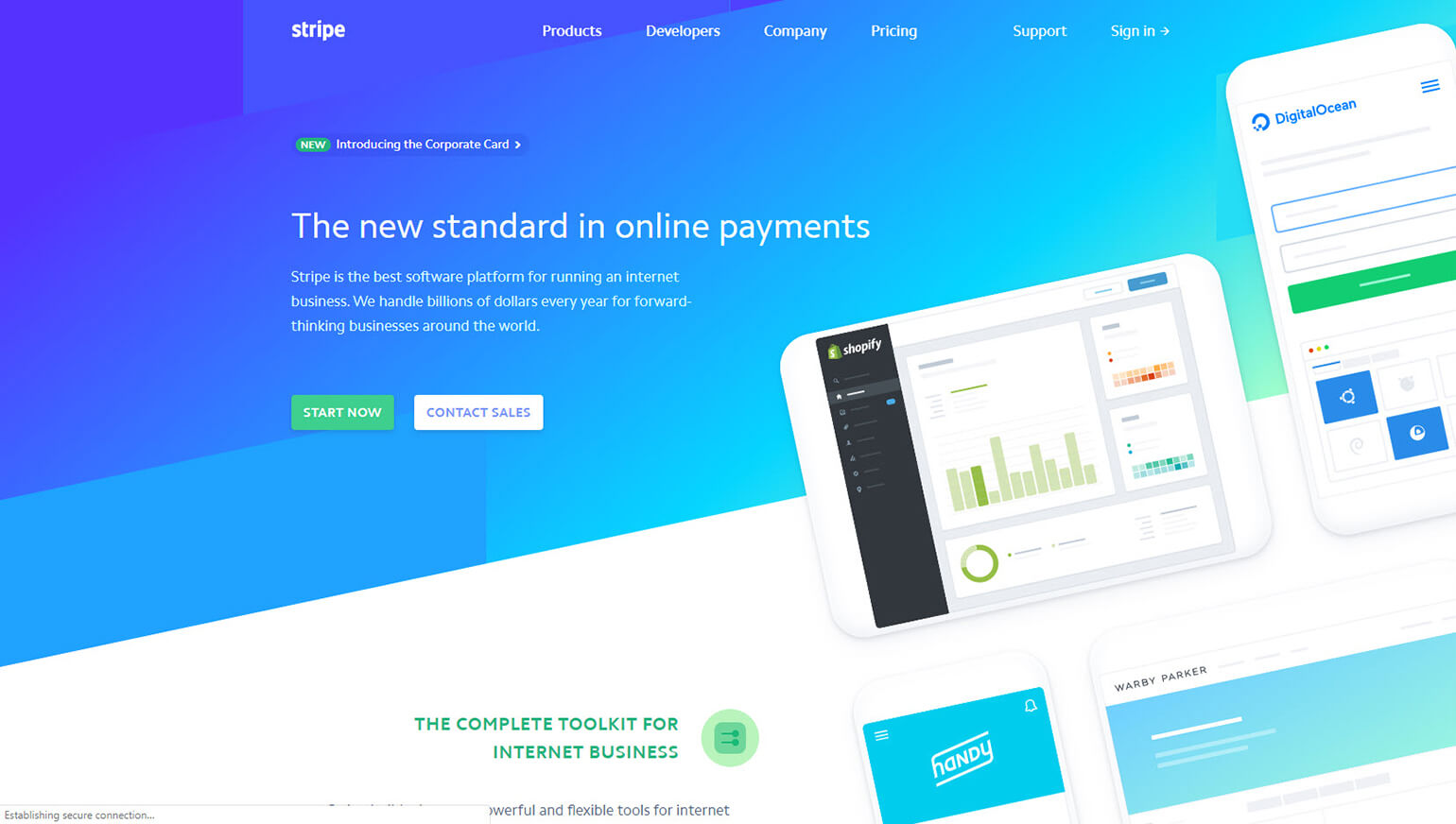
This company is established by brothers Patrick and John Collison. Its competitor is Paypal fintech company. The Irish technology company operates in over 25 countries which allows both private individuals and businesses to pay via the Internet.
It is a software platform to operate internet businesses. Many businesses use Stripe’s software tools to pay, expand globally, and manage their businesses online. It is the start of expanding internet commerce, supporting new business models and the latest platforms from marketplaces to mobile commerce sites.
Besides, Stripe is built for developers, makers, and creators that handle the hard technical problems necessary to build global economic infrastructure.
#2. YapStone
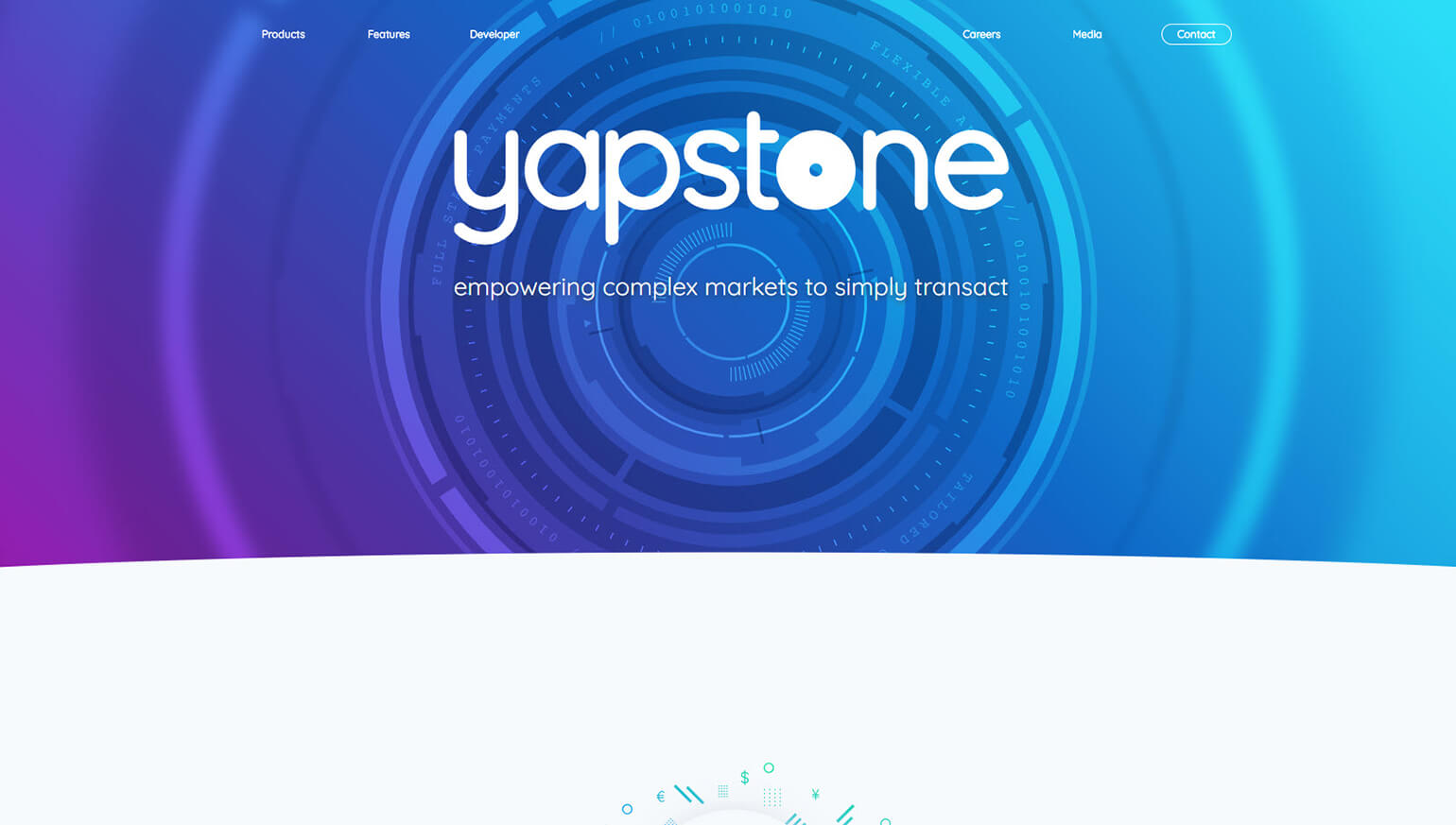
YapStone is established in 1999, has focused on providing end-to-end payment solutions to multi-billion dollar sharing economy marketplaces and vertical markets, such as apartments and vacation rentals. Their strategy is all things payments for global marketplaces in the world that are determined by YapStone CEO Tom Villante.
It processes over $20B in payment volume annually. It is recognized on the Inc. 5000 list of Fastest-Growing Private Companies for ten consecutive years, as well as San Francisco Bay Area’s Best and Brightest Company to Work For by the National Association for Business Resources.
#3. Braintree

Braintree is a subsidiary of PayPal based in Chicago. It focuses on mobile and web payment systems for eCommerce companies. Braintree is acquired by Paypal at $800 million in 2013. More 3,000 e-commerce sites use Braintree’s technology to process credit card payments.
It is also one of the first fintech companies to focus on mobile commerce. Of the $4.5 billion in sales that the company processes each year, $1 billion of those are on mobile phones. Furthermore, transaction volume on its platform has grown nearly tripling every year since it was acquired. In 2015, the company said it surpassed $50 billion in payment volume.
#4. Adyen

Adyen is a technology company based in Amsterdam that provides businesses with a single solution to accept payments anywhere in the world. More than 4,500 businesses such as Facebook, Uber, Airbnb, Netflix, L’Oreal, Spotify, Dropbox, Evernote, Booking.com, Vodafone, Mango, Crocs, O’Neill, SoundCloud, KLM, and JustFab are served by Adyen. It is the payment platform that provides a modern end-to-end infrastructure connecting directly to Visa, Mastercard, etc.
With a 100 percent growth rate, it was recently named as a leader among Global Commerce Payment Providers and a top IPO candidate.
Real Estate and Property Management
Throughout this year, the talk of the town in the venture-backed real estate space is definitely the implosion of WeWork and its ill-fated IPO. However, other trendlines for the start-up’s sphere in this area have some positive developments.
Investors had pumped over $5.2 billion into an assortment of American start-ups in the early of December. For example, Knotel – the furnished workspace rental provider, Knock – the online home-selling platform, and Compass – a hi-tech real estate brokerage, altogether they have raised nearly $1.2 billion in funding rounds in 2019. Nevertheless, other less capital-intensive areas of ‘proptech’ have also attracted investors’ interest, including a bevy of property management software providers.
Top real estate startups
#1. Atlant

Atlant is launched in 2017 to remedies the situation of illiquidity and opaqueness in the real estate market. It also plays a role as a turnkey solution for listing real estate assets for trading in a tokenized form in a similar way that stocks/bonds are listed on exchanges such as NASDAQ, HKEX or SZSE.
Besides, Atlant offers peer-to-peer (P2P) flat rentals globally which reduce drastically fees for both tenants and landlords and eliminate the possibility of fake reviews and ratings.
#2. Roofstock
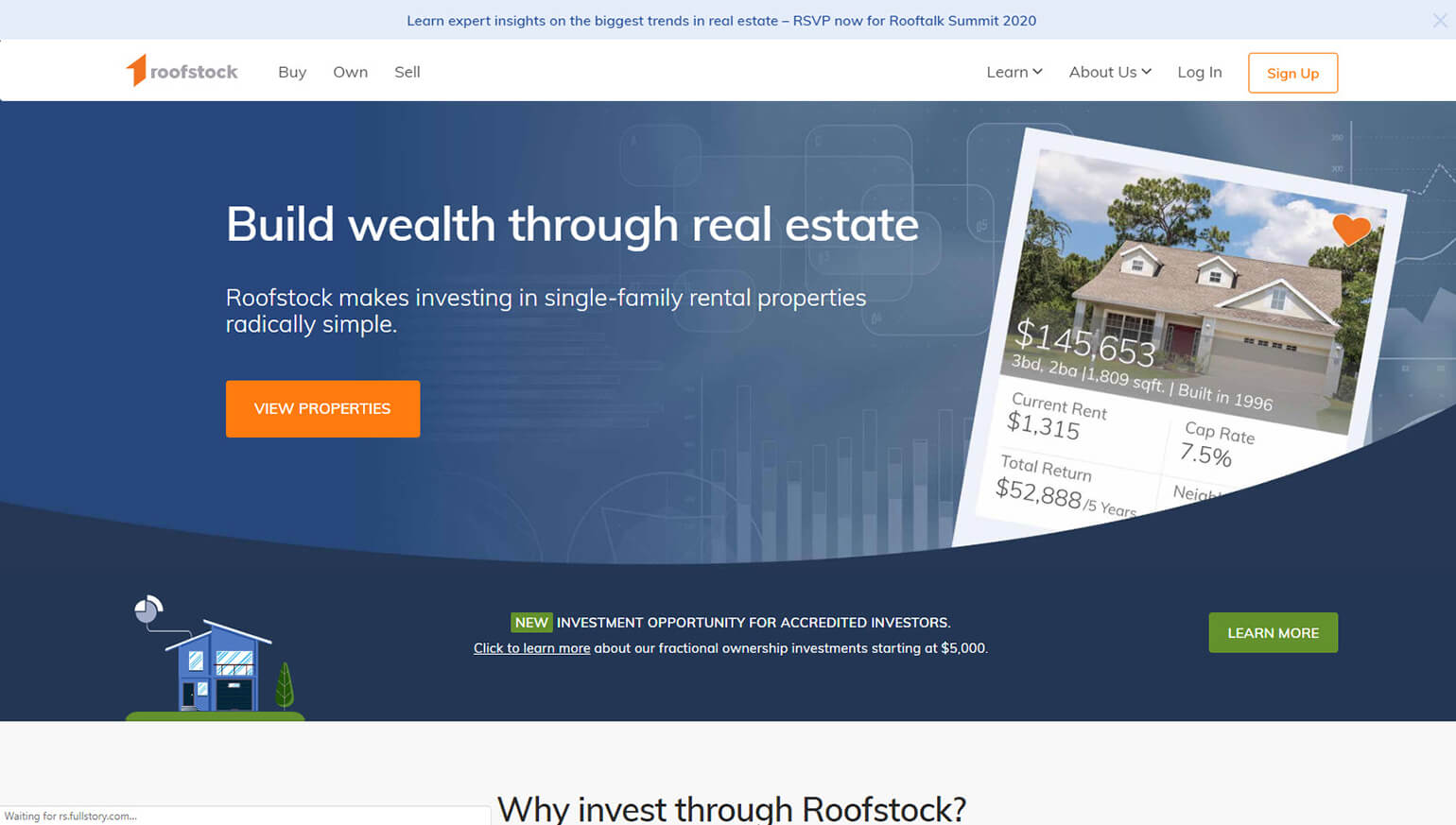
Roofstock is an Oakland-based tech startup founded in 2014. It is the first online marketplace for single-family rentals, a sector that was awaiting disruption. Roofstock helps to level up efficiency and transparency in transactions with leased single-family homes and took them outside the Multiple Service Listing (MLS). Investors create Roofstock for investors that provide research, analytics, and insights to evaluate and purchase independently certified properties.
Buyers can market their rentals without affecting renters or losing income by technology, artificial intelligence (AI), and machine learning.
#3. Fundrise

Fundawn focuses on two major industries which are crowdfunding and real estate. It is an investment platform that allows everyone in the US access to invest private market real estate through one simple platform regardless of net worth. A new investment approach is designed to support investors to earn better returns, more consistently by combining technology with new federal regulations.
#4. Buildium

Buildium is established in 2004 which offers an easy-to-use, cost-efficient solution to the challenges faced by all those in property management. It provides an affordable cloud-based property management software solution for property managers and community associations to manage all day-to-day property-related tasks from a single platform.
Today, Buildium’s online property management software is used by more than 15,000 customers in 46 countries.
Insurance
It is generally discussed that insurance has been a start-up sector which made a steady growth for a couple of years. In 2019, insurance has remarkably hit its highest funding levels.
By mid-December, U.S. insurance and insuretech companies procured over $4.75 billion in seeding round, through late-stage funding. Big financings and investment totals are climbing due to the significant wave of seed-stage insurance start-ups launched 3 – 5 years ago. Consequently, hot companies are rapidly maturing in that cohort. They’re looking for ever-larger later-stage rounds.
Co-venture arms of established insurance companies are also active in the field, contributing to boosting values. A provider of health plans for Medicare recipients, Clover Health, closed the largest funding round on a $500 million of Series E.Root Insurance, which provides car insurance rates based on driver’s behavior, and raised $350 million. Meanwhile, Lemonade – an insurance provider for home and renter – pulled in $300 million.
Top insurtech startups
#1. Tractable
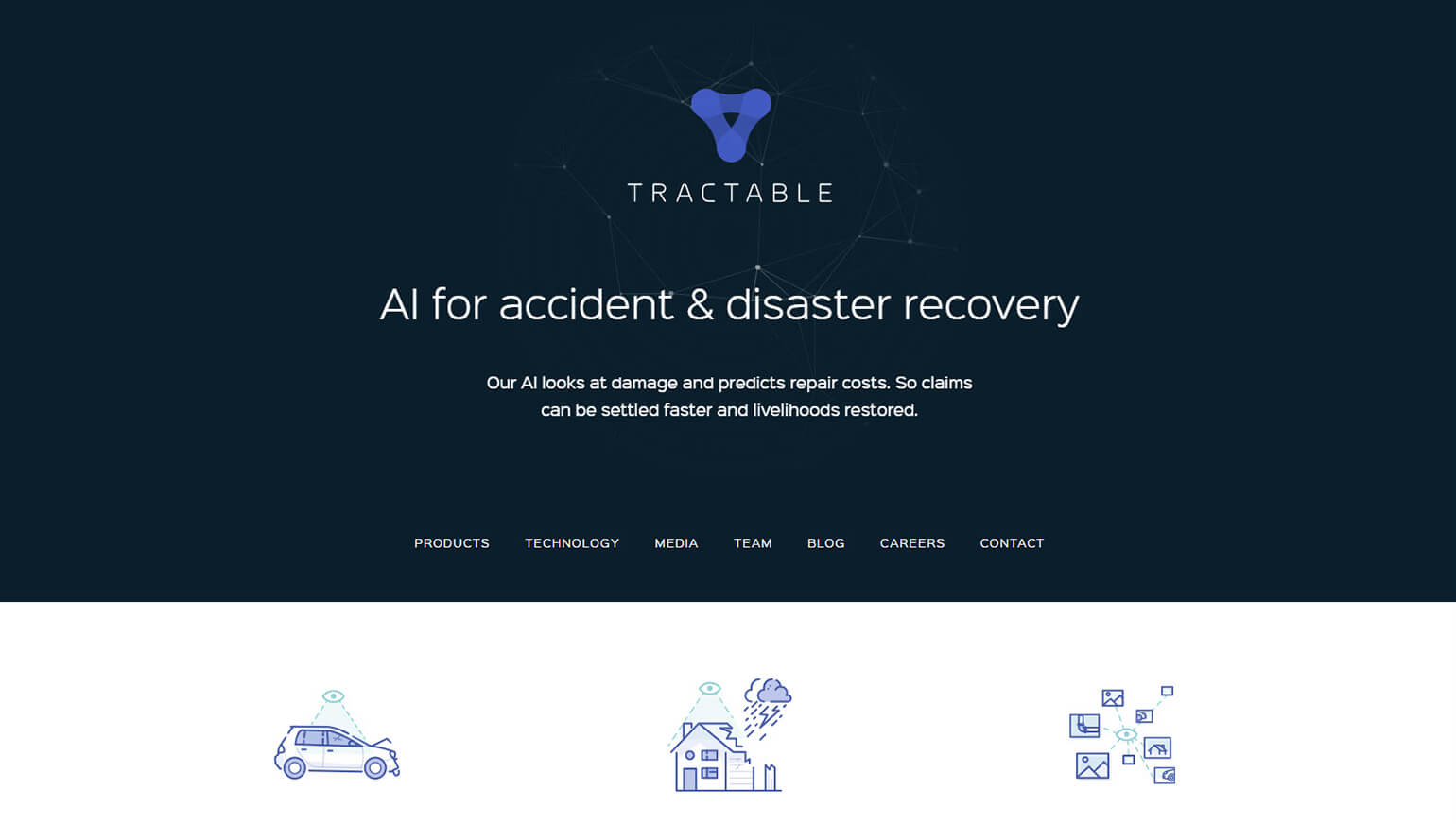
AI is being applied to accident and disaster recovery by the insurtech startup with changes in the way car insurers handle claims.
Tractable, founded in 2014, is used by some of the world’s largest insurance companies to capture pictures at the point of an incident and very quickly provide an estimation of the cost. Previously, this technology for image recognition was not sufficiently advanced, and companies did not have access to enough data to make their models work correctly. By training its deep learning technology on over 100 million images, Tractable solves both problems.
The algorithm looks at the damage to the properties and estimates the cost of repairing images in realtime, meaning lawsuits can be resolved more easily. Instead of evaluating a claim for injuries after a car accident for days or even weeks, it now takes minutes for insurers using Tractable.
The company has raised $30 million in funding from Insight Venture Partners, the Series B round’s lead investor, and other U.S. investors, as well as private capital from insurance industry business angels.
#2. Dinghy
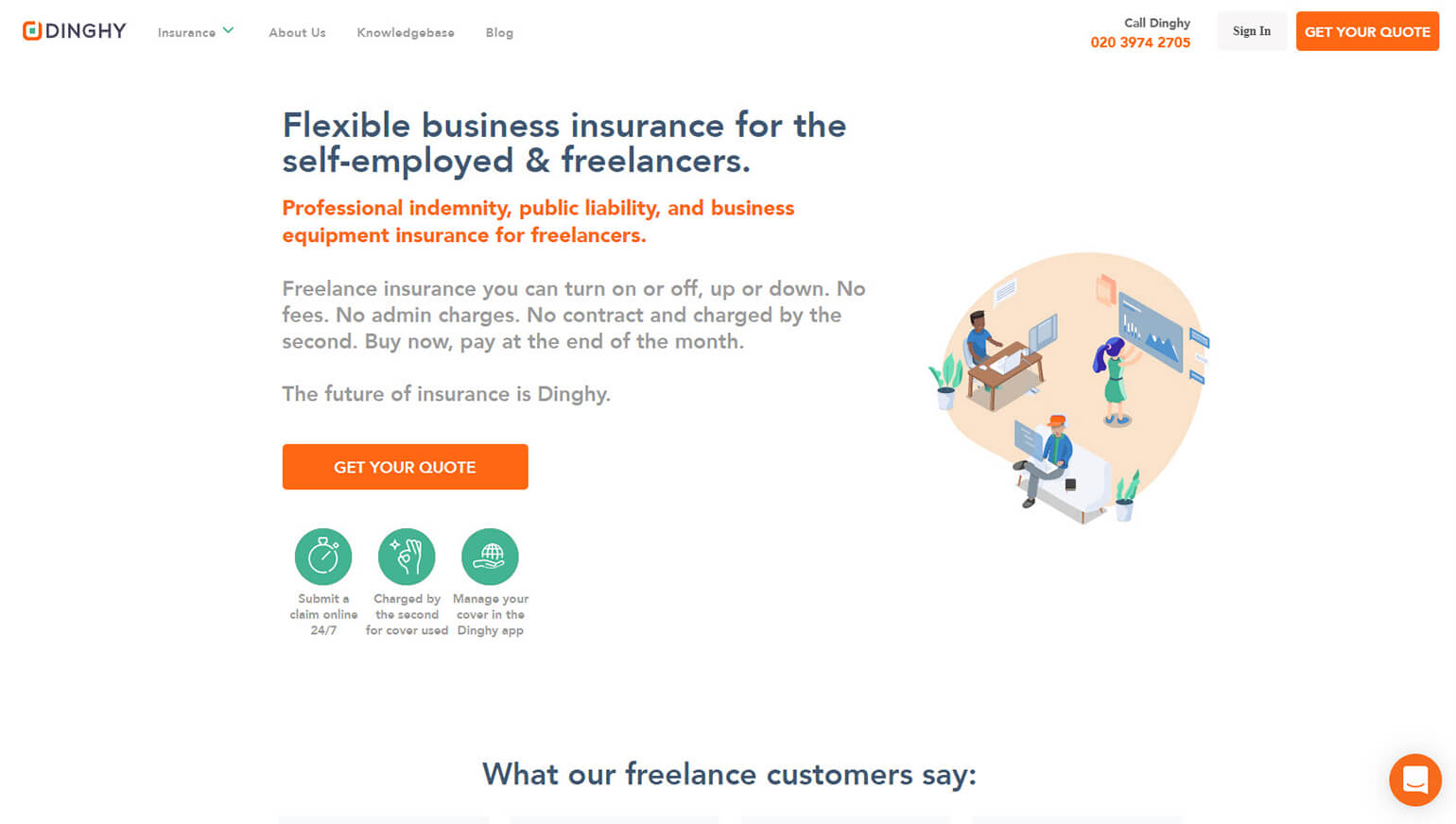
This app-based freelancer insurer allows freelancers to match their insurance with their working lives on demand, something they have found difficult to do before.
Founded in 2017 by three former employees of the insurance company Simply Business, Ben Wilks, Edward Woodcock, and Robert Hartley, Dinghy launched the world’s first on-demand professional insurance and public liability coverage, coverage of business equipment, legal expenses, and cyber liability coverage.
Dinghy closed a $1.1 million seed round led by Baderton Capital in July 2017 before being acquired by a contractor insurance company, Kingsbridge group, this year.
#3. Untangl

The unreliable and often volatile nature of external data can lead to a real challenge for insurers, resulting in delays in identifying new opportunities and handling existing business books.
Untangl is the insurtech that uses AI to recognize inbound customer or employee data in any format, transform it into readable data in seconds from which providers can create quotes without having to convert data into cells.
The company was introduced in May this year by entrepreneurs Richard Stewart and Steve Carter, initially for their own start-up Untangl, which provides benefits to SMEs for workers, including insurance products.
To date, funding has come from the founders and private investors, and additional investment is now being pursued to accelerate growth.
Automation
Automation is the primary shortcut to the program machine in order to meet human needs. In a few years now, giant machines sucking down fuel are replaced by software programs running on pocket-sized devices.
Therefore, automation software developers are getting huge capital flows from venture capital investors. In 2019, automation software companies in the U.S. have pulled in $2.89 billion in known funding, based on Crunchbase data, which is much higher than experts’ expectations in 2018. Developers and investors can totally look forward to a higher rise in the coming months, as more and more funding rounds are reported to get added to the database.
UiPath – software developer to automate repetitive tasks for office workers – pulled in approximately $568 million in Series D financing, which brings total funding to date to $1 billion; in the meantime, Rival Automation Anywhere has just closed on a $290 million last month.
Top automation startups
#1. Grofit – environment & soil monitoring

Grofit is an Israeli start-up, which develops IoT (the Internet of Things) devices and sensors to measure environmental conditions and soil moisture. Farmers primarily have to sense soil moisture and soil type so that they identify precisely the condition of their soil. Therefore, applying innovations of IoT helps them detect active neutron in the soil and sense electric pulses from water content. This hi-tech revolution makes it much easier to identify what kind of soil it is or how much moisture it holds in liquid. However, small sensors still have to work with larger sensors whilst researchers need to make sure that the data is completely uploaded to a central system. This data is captured in decision support tools that are enabled to access smartphones. Ultimately, these sensors will increase farmers’ yield, reduce the waste of fertilizers and water for agriculture, and allow them to gain more income.
#2. IgnisNova – satellite-based assessment
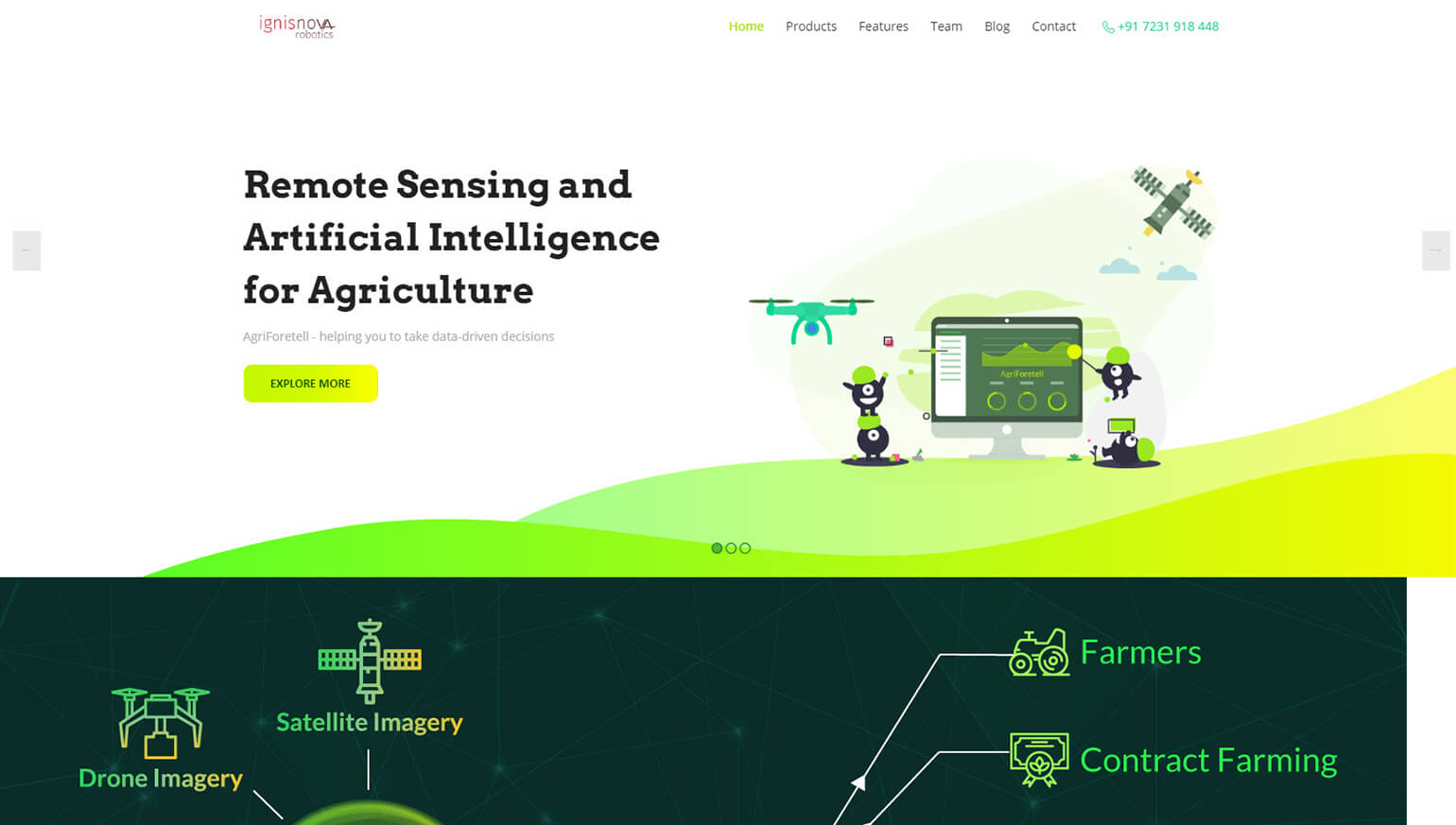
The development of Artificial Intelligence (AI) is the best solution for farm owners to deal with their labor shortages. AI-powered systems and devices detect and act based on the information that they sense. For example, a robot run by AI-administrator can exactly detect weed and act to remove it in a few seconds. Due to this, an Indian start-up, IgnisNova, specially develops remote sensing and AI services in the agriculture sector. Their AI-powered system converts data from satellites into exact crop area mapping. They also diagnose early disease detection for crops with spectral analysis of the farm. Last but not least, Ignisnova offers risk assessment from AI-controlled satellite by anticipating weather and crop conditions.
#3. UiPath

Throughout a 7-year journey, UiPath has shown such a strong presence and business growth. In The Forrester Wave™ 2018 Report for Robotic Process Automation, the company was titled the RPA provider with the strongest current offering. UiPath caters to various categories including finance, insurance, healthcare, and manufacturing. They upgrade third-parties like SAP, Oracle, Citrix, and Mainframe automation to give their robot intelligence to detect and aware of how objects relate in the same way of humans. This innovation allows them to find screen elements contextually and instantly adjust to screen changes. What is worth noting from UiPath’s product is that their robots are about four times faster than others thanks to the ability to process screen changes in less than 100 milliseconds. In other words, UiPath is on its way to becoming the leader in enabling back-office automation.
#4. Blue Prism

With an aim to help businesses responding quickly and cost-effectively to changes, Blue Prism’s RPA software has provided them with incredible manual automation; rule-based, administrative tasks and processes. This has taken a long time and effort to complement the accuracy of the outcome. Additionally, Blue Prism creates a virtual workforce, which consists of the operational teams or certified partners using their robotic automation technology. Then, IT-governed frameworks and complex arrangements are harnessed to manage automation. In fact, there are many organizations such as The Co-operative Banking Group, Shop Direct, RWE npower, Fidelity Investments, the NHS, and O2 trusting and employing Blue Prism’s technology to respond promptly to business changes through back-office and administrative operations.
Conclusion
As mentioned before, U.S. venture sponsors invest strongly in industries such as fintech, real estate, insurance, and automation. This implies that there are many areas that decline significantly in 2019. Thus, whether your businesses are under this influence of status or not? If so, what is your matter? Do not hesitate to contact us to share your problem. We are ready here to support you.
You May Also Like:









